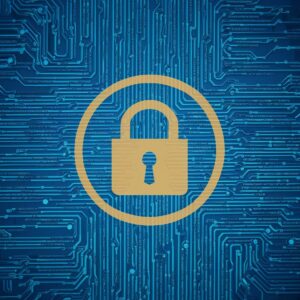The Rise of the Network Hacker: How Cybercriminals are Exploiting Vulnerabilities
Cybercriminals leverage their technical expertise to gain unauthorized access to computer networks, often with malicious intentions. Their objectives encompass various complexities, from financial gain to ideological aspirations. Numerous hackers are driven by the allure of monetary gain, aiming to steal valuable data like credit card information, personal identities, or intellectual property, which can be sold for profit on illicit online marketplaces. Understanding these motivations is not only important, but it is crucial for effective cybersecurity.
Specific hackers are motivated by a desire for power and control, finding satisfaction in infiltrating networks and showcasing their ability to manipulate systems. Some individuals find motivation in their ideological or political beliefs, directing their attention towards particular organizations or individuals whose actions they strongly disagree with. They use this to express their views or further their cause. The thrill and intellectual stimulation of circumventing security measures can serve as strong incentives for hackers.
A comprehensive understanding of the different motivations behind hacking is crucial in developing successful cybersecurity strategies. When implemented correctly, these tactics can empower organizations and individuals to combat hacking and safeguard their networks effectively.
Gaining insight into the motivations driving hacking operations can help organizations and individuals proactively prepare for potential threats and develop more robust cyber defence strategies.
Key Points
- Cybercriminals are motivated by various factors, such as financial gain, political motives, and personal satisfaction, which drive them to exploit network vulnerabilities.
- Cybercriminals focus on identifying and exploiting network vulnerabilities using tactics such as phishing, social engineering, and exploiting software weaknesses.
- Over time, cyber attacks have transformed from simple malware to intricate network breaches, encompassing ransomware and advanced persistent threats.
- Network hacking can have serious consequences, including financial loss, damage to reputation, and potential legal ramifications.
- You can effectively prevent and mitigate cyber-attacks by implementing robust passwords, regularly updating software, and educating users about cybersecurity best practices.
 Identifying Vulnerabilities: How Cybercriminals Target and Exploit Weaknesses in Networks
Identifying Vulnerabilities: How Cybercriminals Target and Exploit Weaknesses in Networks
Malware: A Widespread Menace
One common approach involves utilizing malware, such as viruses, worms, trojans, and ransomware. Malware often enters systems through deceptive emails, harmful websites, or corrupted files. Once inside a network, it can cause serious harm by stealing data, disrupting operations, or holding computers hostage.
Social Engineering: Mastering the Art of Manipulating Human Psychology
Cybercriminals often resort to social engineering, a deceptive technique that manipulates individuals into revealing sensitive information or engaging in actions that put network security at risk. By leveraging human psychology to bypass technical defences, various strategies like pretexting, baiting, or tailgating can be employed to achieve this objective.
Understanding software vulnerabilities and brute force attacks
Network hackers can exploit software vulnerabilities to gain unauthorized access to systems. They often focus on outdated or unpatched software with known security vulnerabilities, which can be exploited to install malicious software, steal data, or gain computer control. In addition, cybercriminals often use brute force attacks to exploit weaknesses in computer networks. This involves methodically testing different login and password combinations until the correct credentials are found, enabling the hacker to gain access to the network. Having a solid grasp of the various tactics employed by cybercriminals to pinpoint and exploit network vulnerabilities empowers organizations and individuals to fortify their defences and mitigate potential risks proactively.
The Evolution of Cyber Attacks: From Basic Malware to Sophisticated Network Breaches
The cyber attack landscape has significantly transformed, shifting from primary malware infections to advanced network breaches that can potentially cause extensive harm. In the past, hackers predominantly used simple viruses and worms to target networks and create havoc. These initial malware versions were easily detectable and removable, laying the foundation for the emergence of more advanced cyber threats in the years to come.
We must remain vigilant as cybercriminals have become more sophisticated with technological advancements. Incidents involving advanced persistent threats (APTs) are on the rise, with their ability to manoeuvre and target with precision, often eluding detection for extended periods. In recent years, there has been a significant increase in thieves' use of ransomware. This malicious software encrypts data and then demands a ransom to decrypt it. By staying alert and ready, we can effectively combat these risks.
As cyber-attacks have evolved, zero-day exploits have become increasingly common. These exploits specifically target vulnerabilities in software that have not yet been discovered or patched. These exploits can be highly advantageous for hackers as they enable attackers to take advantage of vulnerabilities before they are identified and resolved by software developers. In addition, the increasing prevalence of cyber attacks sponsored by nation-states has further complicated the cybersecurity landscape. Governments use their vast resources to carry out global cyber espionage and sabotage operations.
In today's rapidly changing digital landscape, it is of utmost importance for organizations and individuals to remain vigilant and well-informed about the ever-evolving cyber threats. By staying updated and adapting security measures accordingly, one can effectively safeguard against increasingly sophisticated attacks. With a proactive approach, we can protect our systems and data from potential threats, giving us control over the situation.
 The Impact of Network Hacking: How Cybercriminals Compromise Your Computer and Data
The Impact of Network Hacking: How Cybercriminals Compromise Your Computer and Data
Network hacking can cause significant harm to both individuals and organizations. Once hackers gain unauthorized access to a computer system or network, they can retrieve sensitive information, including bank records, trade secrets, intellectual property, and personal details. Consequently, individuals and organizations may fall prey to identity theft, financial fraud, or harm to their reputations.
In addition, network hacking can potentially disrupt operations and lead to significant downtime for businesses, ultimately reducing productivity and revenue. Under certain circumstances, cyber attacks can lead to losing or destroying vital data, causing significant long-term consequences for the individuals or organizations impacted. Gaining unauthorized access to a computer or network could also lead to the installation of additional software or backdoors, enabling hackers to maintain persistent control and carry out their malicious activities without detection.
This can exacerbate the consequences of a cyber attack and hinder the victims' recovery process. In addition, network hacking has the potential to erode trust and confidence in digital systems and technology. This can lead to losing faith in online services and hesitancy in embracing new digital advancements. Network hacking has a wide-ranging impact, causing significant consequences for individuals, corporations, and society.
Protecting Your Network: Steps to Prevent and Mitigate Cyber Attacks
Ensuring the security of your network requires a comprehensive approach that encompasses both technical measures and user education. Regularly updating software with the latest security patches and keeping it up to date is crucial in preventing computer breaches. This solution effectively addresses identified vulnerabilities, significantly mitigating the risk of malicious individuals taking advantage of them.
In addition, implementing robust access controls and authentication techniques can effectively safeguard networks and systems from unauthorized access. Implementing strong security measures such as complex passwords, multi-factor authentication, and role-based access controls is essential to restrict powers based on job responsibilities. Businesses must also invest in reliable security tools such as firewalls, antivirus software, and breach detection systems to prevent unauthorized individuals from accessing their networks.
Consistently performing security audits and penetration tests is essential for maintaining the effectiveness of your cybersecurity plan. Through the identification and resolution of vulnerabilities in network defences, we can ensure enhanced security.
Before hackers exploit them, you can significantly reduce the risk of cyberattacks. Furthermore, user education and awareness are essential in this proactive strategy, helping foster an organization's security culture.
The Role of Cybersecurity: How Organizations and Individuals Can Defend Against Network Hackers
Enhancing Cybersecurity Measures
Establishing well-defined policies and streamlined processes for handling access controls, data protection, incident response, and security awareness training can significantly enhance an organization's cybersecurity measures. Approaching the task methodically can effectively develop a plan to address potential risks and vulnerabilities.
Ensuring the Protection of Confidential Information
Encryption technologies are essential for safeguarding sensitive data from unauthorized access during transmission or storage. Businesses must regularly conduct risk reviews to identify potential security vulnerabilities and prioritize areas that require attention. This enables organizations to optimize resources and prioritize resolving critical security vulnerabilities within their networks.
Emphasizing the Importance of Personal Accountability in Cybersecurity
Developing strong cybersecurity habits is crucial in safeguarding networks against hackers. It is essential to take certain precautions to protect your online security. This includes using robust passwords, being cautious about sharing personal information online, regularly updating your software, and staying vigilant for potential security threats. By implementing adequate security measures, individuals can create a safer online environment for all users.
The Future of Network Hacking: Emerging Threats and the Importance of Staying Vigilant
With the continuous advancement of technology, the abilities of individuals who engage in unauthorized network access will also progress. As we look ahead to the future of network security, we can expect the emergence of new and advanced threats. These may include AI-powered attacks, quantum computing-driven breaches in cryptography, and vulnerabilities in the Internet of Things (IoT). Addressing these emerging threats will pose significant challenges for cybersecurity professionals, necessitating innovative approaches to mitigate their impact.
In addition, the growing interconnectivity of IoT devices is broadening the scope for hackers to exploit, giving them a more significant opportunity to wreak havoc. As our world becomes increasingly digital, it's essential to recognize that this also puts critical infrastructure, such as power grids, transportation systems, and hospitals, at a heightened vulnerability to cyber attacks. It is crucial to always stay alert and adapt cybersecurity measures to combat emerging threats effectively.
Governments, industry partners, and cybersecurity experts must work together to develop effective strategies for safeguarding against future network hacking threats. Staying updated on the latest cybersecurity trends and implementing strategic defence measures allows individuals and organizations to prepare effectively for the ever-evolving landscape of network hacking.
References:
WHY IS CYBERSECURITY IMPORTANT FOR BUSINESS? – A&B Business. https://www.abbusiness.com/2023/06/22/why-is-cybersecurity-important-for-business/
What Is A Zero-Day Exploit And Why Are They Dangerous? – Cyber Matters Reviews. https://cybermatters.review/hacking/what-is-a-zero-day-exploit-and-why-are-they-dangerous/
The post How Cybercriminals Exploit Vulnerabilities appeared first on Ezi Digital Agency.
The post How Cybercriminals Take Advantage of Security Holes appeared first on Ai Ninja Toolbox.
The Article How Cybercriminals Take Advantage of Security Holes Was Found On https://limitsofstrategy.com
The Article How Cybercriminals Take Advantage of Security Holes First Appeared ON
: https://ad4sc.com

 The Impact of Network Hacking: How Cybercriminals Compromise Your Computer and Data
The Impact of Network Hacking: How Cybercriminals Compromise Your Computer and Data





Comments are closed